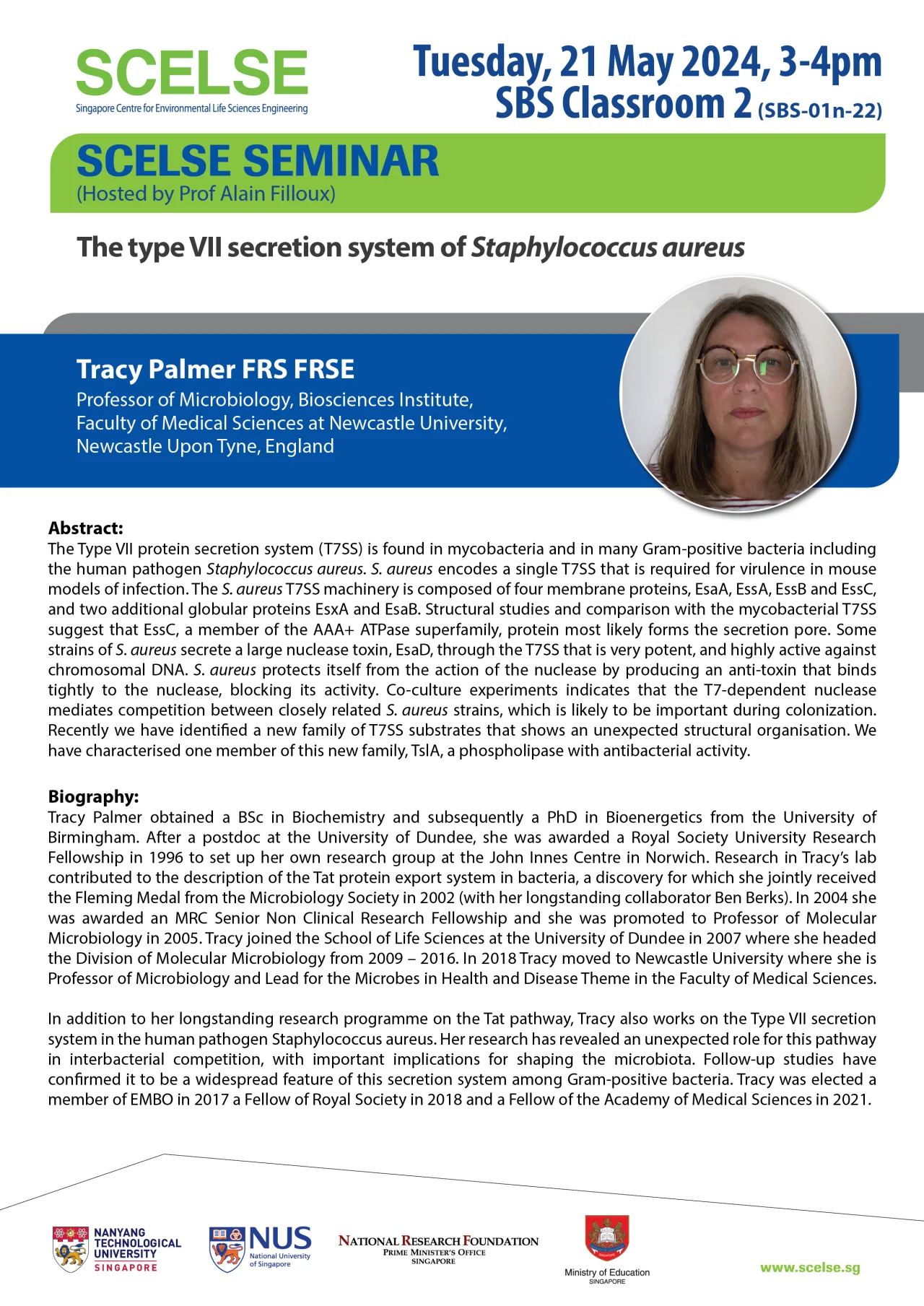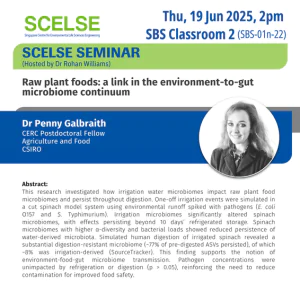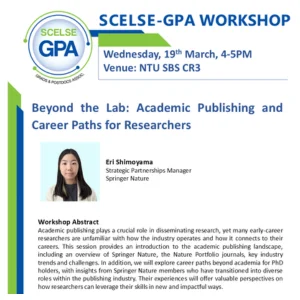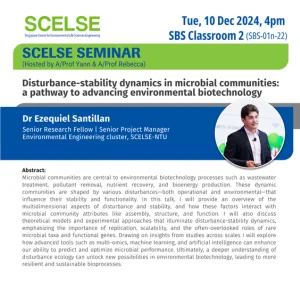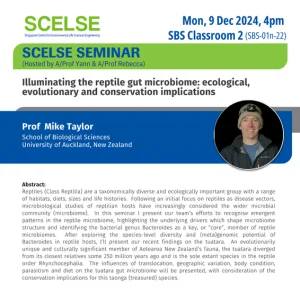The type VII secretion system of Staphylococcus aureus
Date: Tuesday, 21 May 2024
Time: 3pm – 4pm
Venue: NTU School of Biological Sciences Classroom 2 (SBS-01N-22)
Abstract:
The Type VII protein secretion system (T7SS) is found in mycobacteria and in many Gram-positive bacteria including the human pathogen Staphylococcus aureus. S. aureus encodes a single T7SS that is required for virulence in mouse models of infection. The S. aureus T7SS machinery is composed of four membrane proteins, EsaA, EssA, EssB and EssC, and two additional globular proteins EsxA and EsaB. Structural studies and comparison with the mycobacterial T7SS suggest that EssC, a member of the AAA+ ATPase superfamily, protein most likely forms the secretion pore. Some strains of S. aureus secrete a large nuclease toxin, EsaD, through the T7SS that is very potent, and highly active against chromosomal DNA. S. aureus protects itself from the action of the nuclease by producing an anti-toxin that binds tightly to the nuclease, blocking its activity. Co-culture experiments indicates that the T7-dependent nuclease mediates competition between closely related S. aureus strains, which is likely to be important during colonization. Recently we have identified a new family of T7SS substrates that shows an unexpected structural organisation. We have characterised one member of this new family, TslA, a phospholipase with antibacterial activity.
Speaker:
Tracy Palmer FRS FRSE
Professor of Microbiology, Biosciences Institute, Faculty of Medical Sciences at Newcastle University, Newcastle Upon Tyne, England
Biography:
Tracy Palmer obtained a BSc in Biochemistry and subsequently a PhD in Bioenergetics from the University of Birmingham. After a postdoc at the University of Dundee, she was awarded a Royal Society University Research Fellowship in 1996 to set up her own research group at the John Innes Centre in Norwich. Research in Tracy’s lab contributed to the description of the Tat protein export system in bacteria, a discovery for which she jointly received the Fleming Medal from the Microbiology Society in 2002 (with her longstanding collaborator Ben Berks). In 2004 she was awarded an MRC Senior Non Clinical Research Fellowship and she was promoted to Professor of Molecular Microbiology in 2005. Tracy joined the School of Life Sciences at the University of Dundee in 2007 where she headed the Division of Molecular Microbiology from 2009 – 2016. In 2018 Tracy moved to Newcastle University where she is Professor of Microbiology and Lead for the Microbes in Health and Disease Theme in the Faculty of Medical Sciences. In addition to her longstanding research programme on the Tat pathway, Tracy also works on the Type VII secretion system in the human pathogen Staphylococcus aureus. Her research has revealed an unexpected role for this pathway in interbacterial competition, with important implications for shaping the microbiota. Follow-up studies have confirmed it to be a widespread feature of this secretion system among Gram-positive bacteria. Tracy was elected a member of EMBO in 2017 a Fellow of Royal Society in 2018 and a Fellow of the Academy of Medical Sciences in 2021.
